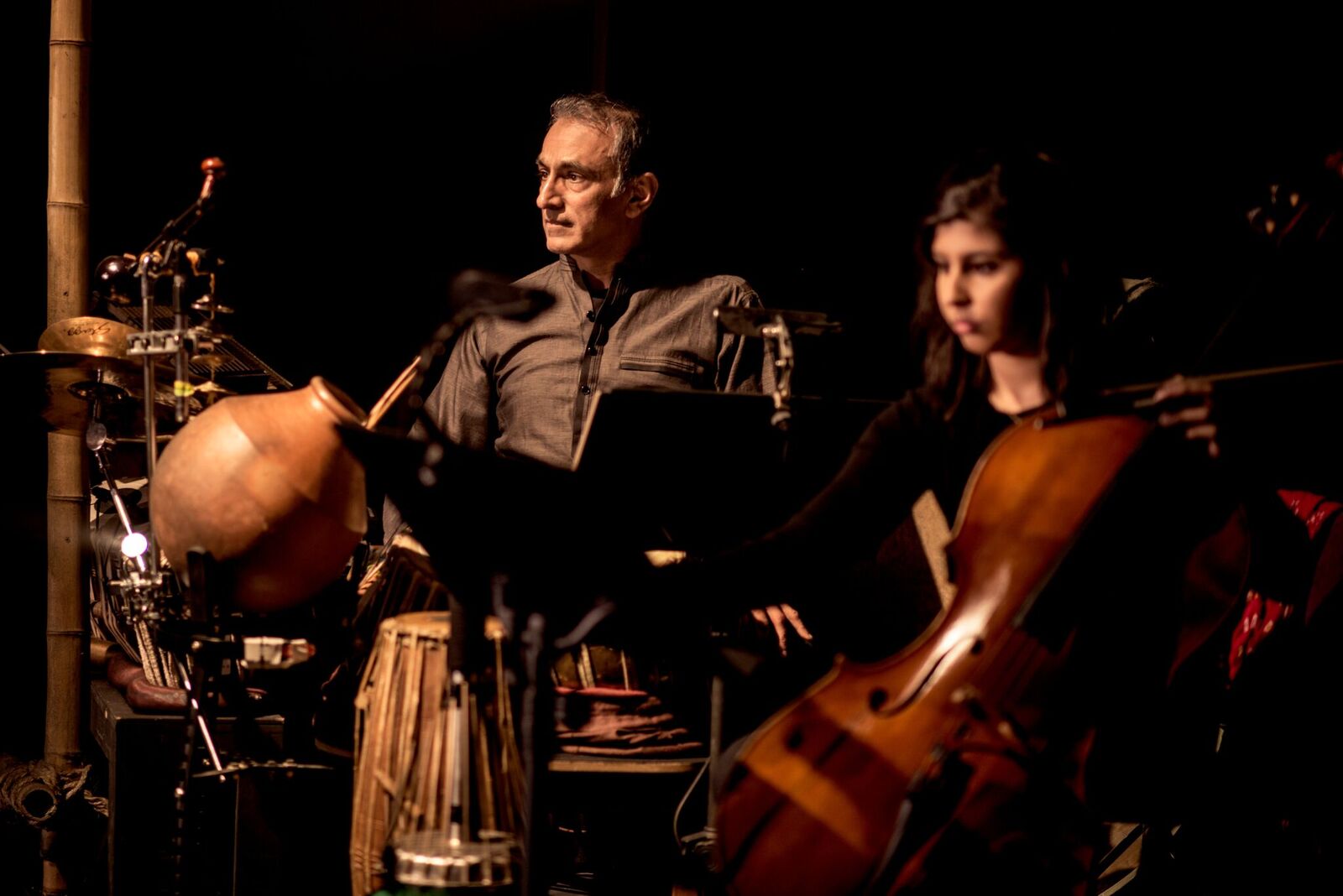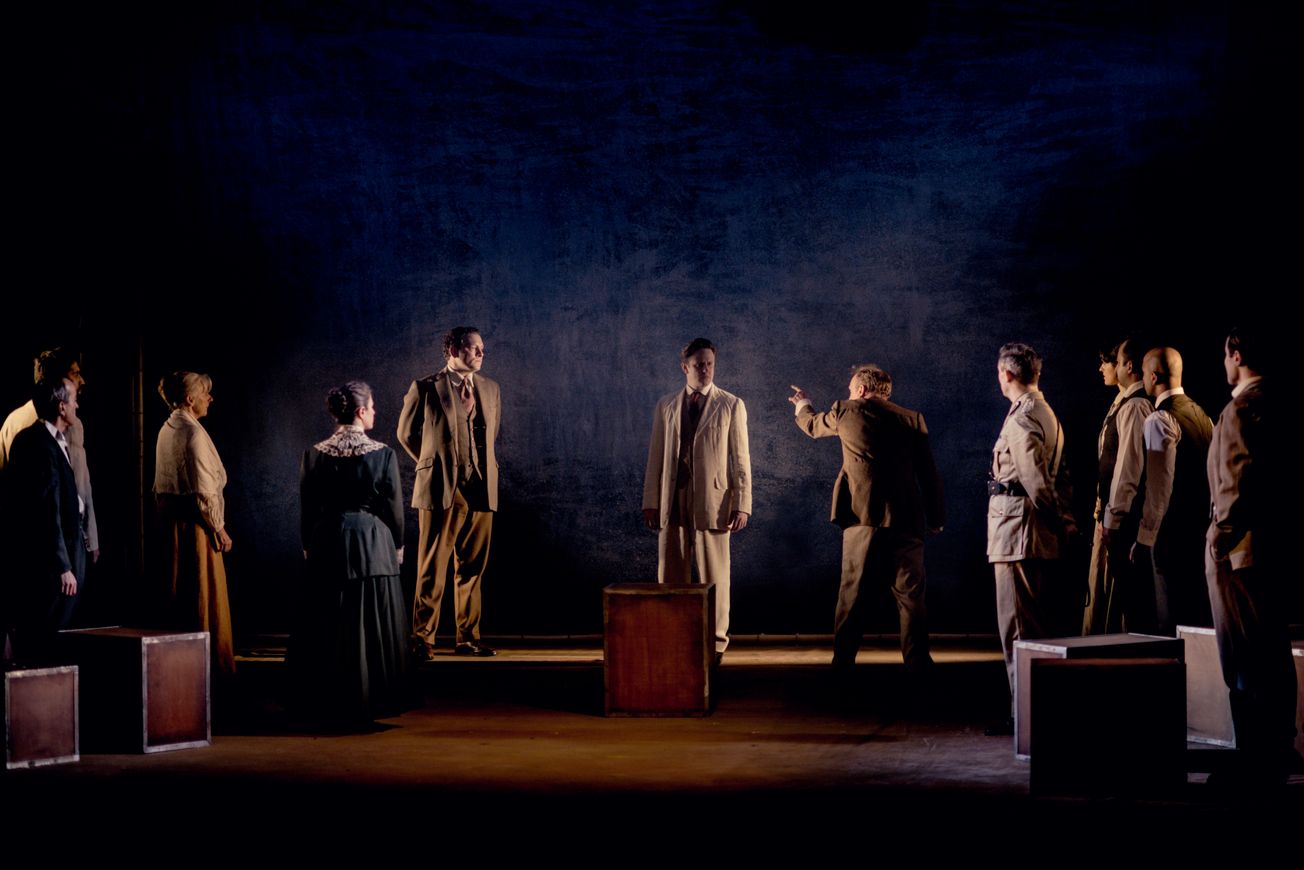Arts Editor Alina Young gives her thoughts on the new adaptation by Simon Dormandy of one of the great novels of the twentieth century, A Passage To India
‘The globe is full of men who are trying to reach one another’: Fielding (Richard Goulding), one of the principal characters of A Passage to India, poignantly observes this fundamental truth that never ceases to lose its relevance.
parallels of thought between ourselves and the characters encourage striking self-reflection
As adaptor and co-director Simon Dormandy explains, the central question of ‘how we can love one another in a world divided by culture and belief’ is ‘every bit as urgent in Britain today’. Although the narrative is firmly stuck in colonial India, parallels of thought between ourselves and the characters encourage striking self-reflection.

Much of the play discusses issues surrounding ‘otherness’- assumptions, judgements, and questions of nationhood- and the decision to have an understated set with simple props and costumes gives a distinctly contemporary mood to the debates. Off-the-cuff remarks, such as that India is ‘all very well, but it’s the real Indians that are the problem,’ starkly resonate with how often contemporary opinion puts vast groups of people into boxes.
Notably, both British and Indian characters dangerously generalise; Aziz (Asif Khan) holds his own preconceptions about other races and religions within India, insisting that there were ‘boxes already’ in his country.

The British who are keen to know India approach it with a homogenising, naïve fascination- they search for their fantasy of the ‘Real India’, and almost fail to hear the Indian characters’ insistent remarks on the reality of India.
one cannot help but glimpse in her the ongoing preoccupations with Orientalist ideas of the exotic
The British at best seem to study, rather than experience, the people around them; they think ‘How magnificent!’ it is to mingle with natives, as if they were an exciting anthropological specimen, rather than wanting to know them on a human level.

Phoebe Pryce’s performance of the young Adela captures both the well-meaning and frustrating angles of such a character; one cannot help but glimpse in her the ongoing preoccupations with Orientalist ideas of the exotic.

However, at times the strains between the cultures could have been uglier in the production. When the drama of the narrative comes to a head and discussion gets heated, sometimes the anger behind such painful problems gets lost. Whilst individual actors’ performances brilliantly observe complex emotions, the play’s overall stripped-back aesthetic could use greater variety to highlight the building tension of the plot.
Asif Khan’s Aziz is in particular exquisitely articulated and wonderfully un-British. He is frank, honest and exuberant, and the audience sympathises with his attempt to balance conflicting emotions- while at first, he accepts British culture in order to survive, his later resistance to the colonisers is a defiant expression of personal and national identity.
the inventive finale uses physical theatre to poignantly express the difficulties of friendships that are ‘not yet’ possible.
Aziz’s attempts to assimilate British culture are especially touching, as he ‘bankrupts’ himself to treat his guests to English marmalade, and expresses his need to wear English clothing in order to be respected. These attempts go tragically unnoticed by the British characters, both by those that judge him and those that want to befriend him.
The peaks and troughs of his friendships provide the much-needed emotional punch to the narrative, and the inventive finale uses physical theatre to poignantly express the difficulties of friendships that are ‘not yet’ possible.
The energy...reverberate[s] throughout the show in the ensemble’s chanting echoes, that give a primal heartbeat to the production.
In contrast to much of the play’s naturalism, moments of ingenious physical theatre bring a sense of the true India onstage. The ensemble evoke the mystical power of India’s caves and waters with great dramatic presence, and seamlessly create everything from a train carriage to an elephant- the strength of the overall show lies in these captivating moments.

In these scenes, deep psychological feelings are expertly conveyed to the audience in a way that is sometimes missed in other parts of the performance. The energy of these scenes does, however, reverberate throughout the show in the ensemble’s chanting echoes, that give a primal heartbeat to the production.

Together with the phenomenal use of live Indian traditional music, these creative sequences show to the audience what is concealed from many of the characters- a sense of the soul and colour of India.
★★★★
All photos by Idil Sukan
How did you like A Passage to India? Let us know in the comments below or on social media









